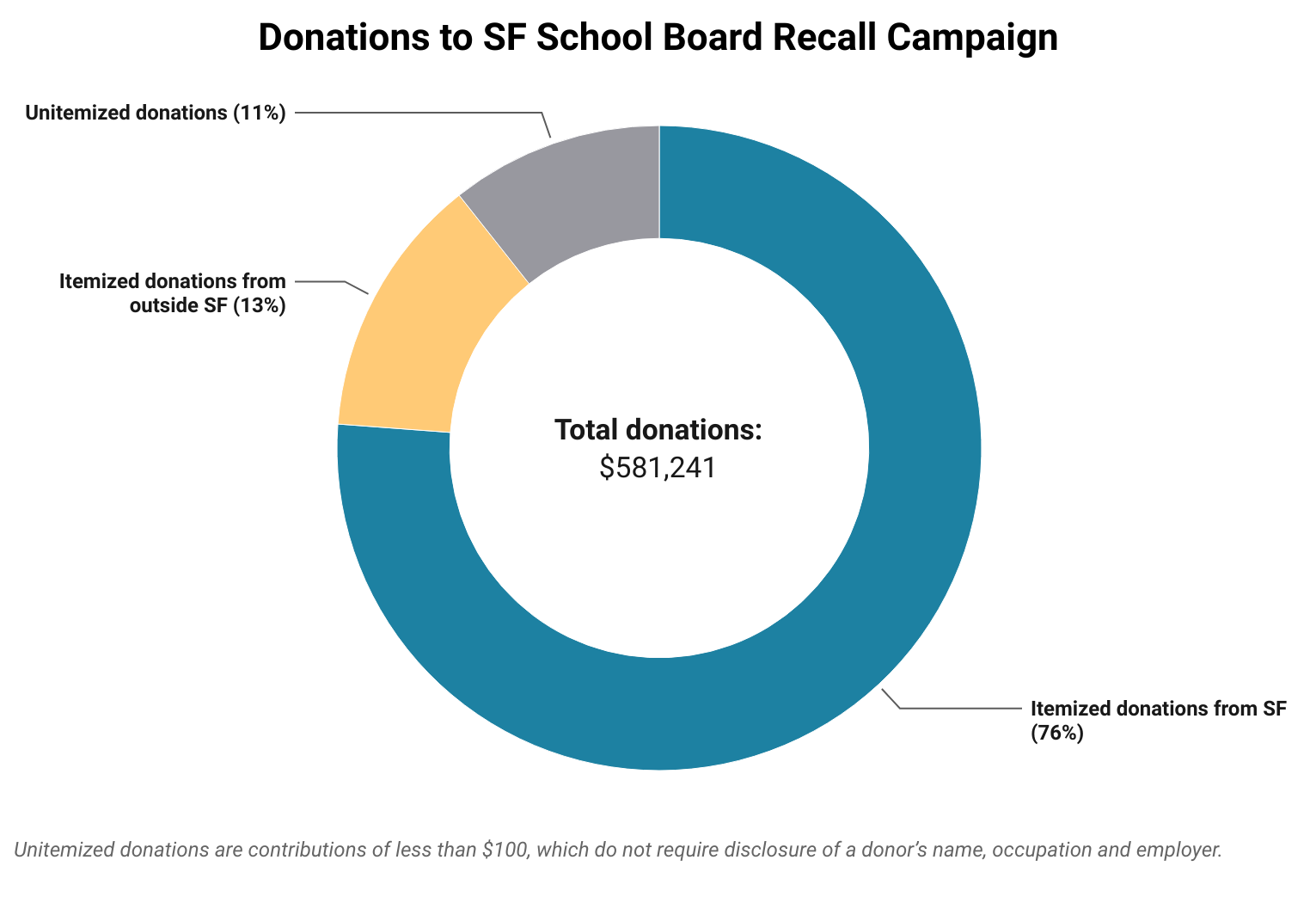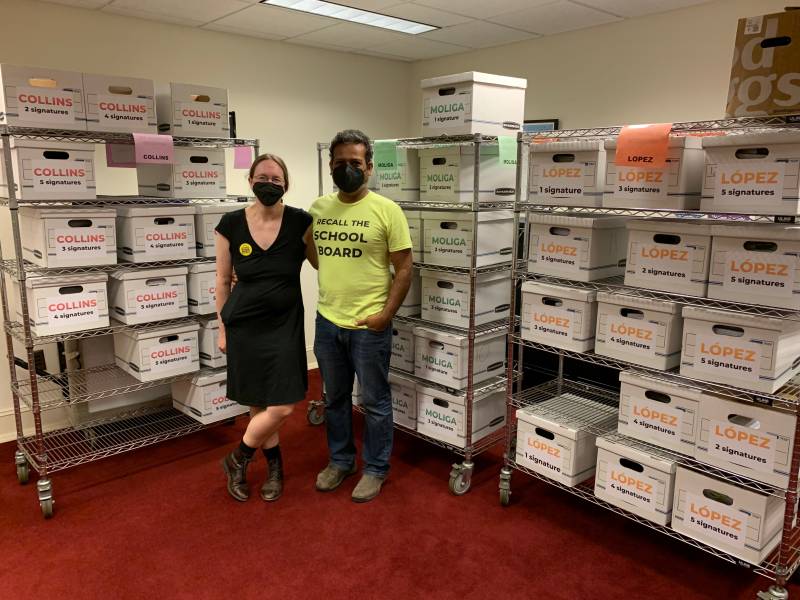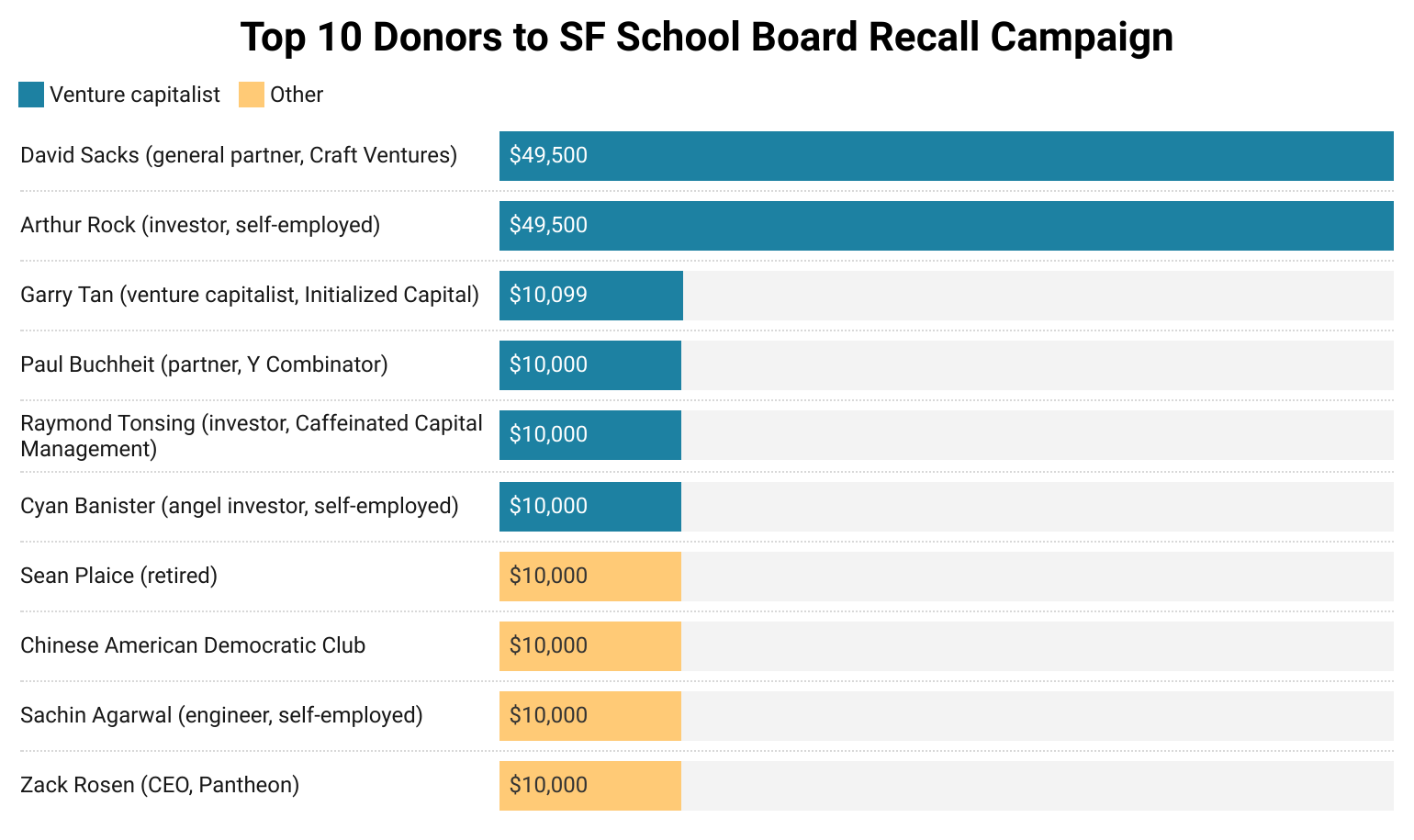San Francisco’s school board has spent the past year in the national spotlight, garnering the attention of pundits from Fox News to the New York Times editorial pages for its controversial decisions on distance learning, school renamings and admissions policies.
The campaign to recall board members Alison Collins, Gabriela López and Faauuga Moliga, however, has relied on a donor network close to home.
A KQED analysis of campaign filings for the election, slated for Feb. 15, found that at least 76% of the pro-recall cash raised so far is coming from donors in San Francisco.
Opponents of the recall, who haven’t started fundraising, will likely seek to portray the campaign as spearheaded by forces outside of the city — as has been the case in a number of other recent school board protests across the country — said Jason McDaniel, associate professor of political science at San Francisco State University, who reviewed KQED’s findings.
“I suspect they'll still do that message, but I do think that so far the fact that most of the donations ... are coming from people in San Francisco who are individuals will at least be a counterargument to that,” he said.
'Local networks'
But the campaign finance reports filed with the city do reveal some potential political vulnerabilities for the recall campaign: Its top donors are wealthy venture capitalists who could serve as prime foils for the unions likely to bankroll the imperiled board members.
But the recall campaign, at least initially, appears to be more of an “amateur affair” than an orchestrated big money takeover of San Francisco schools, McDaniel said.
“I don't mean that in an insulting way. There's not maybe a ton of political experience there,” he added. “But what that seems to be is that they're turning to their local networks. ... That's where they're getting their contributions from so far. I suspect that's pretty politically smart as well.”
Of the $581,240 raised by the recall committee through the end of September, at least $442,834 (76%) came from donors in the city, compared to at least $76,435 (13%) from outside of San Francisco. The remaining 11% of contributions were under $100 — classified as unitemized — meaning the donors did not have to disclose their names or location.

By comparison, some 63% of the donations made to candidates running for school board last year originated in San Francisco, and local measures on the ballot last November got 60% of their cash from city donors.
“The vast majority of donors actually are just from our community,” said Siva Raj, a San Francisco public school parent who is co-chair of the recall campaign. “These are parents, teachers.”
William Hack, who spent 31 years working for the San Francisco Unified School District as a teacher, principal and department supervisor, said he kicked in $75 and volunteered to gather signatures.
“I've never seen a board like this one,” he said, “and I've been through, over my years in the district, many school board meetings.”


